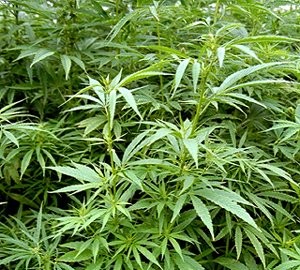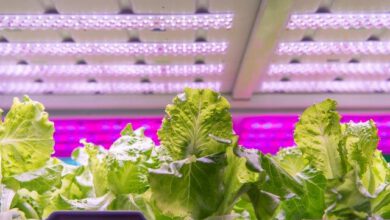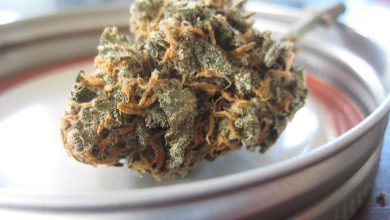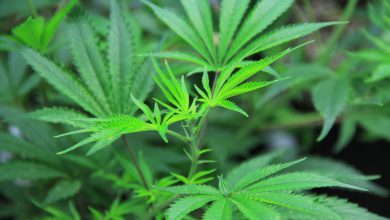Cannabis sativa, from Weed to Medical Product: Challenges and Breakthroughs
An Interview with Dr. Nirit Bernstein By: Nurit Levy

Dr. nirit bernstein is a senior research scientist at the volcani research center, ministry of agriculture, israel. she is an expert in environmental control of cannabis quality. she holds a ph.d. in plant physiology from the university of california, davis usa, and a b.sc. in agricultural sciences from the hebrew university of jerusalem, israel. her research focuses on regulation of production of plant derived pharmaceuticals in medicinal plants, by manipulation of environmental and agronomic conditions, and plant stress physiology. nirit has published over 70 academic publications; she is an associate editor for the ‘journal of cannabis research’; and teaches graduate level courses on “medical cannabis” at the hebrew university of jerusalem. nirit is also the first scientist in israel, to be granted official permission to study and implement research on cannabis – the whole plant.
Nurit levy: dr. bernstein, can you tell us about your research work with medical cannabis?
dr. bernstein: in my lab we started to perfect cultivation practices for medical cannabis about 4 years ago. we aim to determine how to program cannabis plants to produce the most effective components for specific medical conditions. to do this, we study the plant’s physiological and chemical responses to cultivation conditions, such as light quantity and quality, irrigation and fertilization, and stress conditions such as heat, wounding and nutrient deficiencies. we are especially interested in regulation of the plant’s chemical therapeutic qualities.
Nurit levy: which chemicals in cannabis are responsible for the therapeutic effects of cannabis? we usually hear about d9-tetrahydrocannabinol (thc), and cannabidiol (cbd).
Dr. bernstein: the ‘magic’ of cannabis, is its remarkable potential for the treatment of many medical conditions. this includes neurological disorders, inflammation, cancer, pain and more. this highly unique therapeutic potential results from the very large number of compounds with medical potential that this plant contains. more than 500! the 3 major chemical groups with therapeutic potential in cannabis are cannabinoids, terpenes, and flavonoids. surprisingly, only one chemical in cannabis, thc, has psychoactive effects. cbd is non-intoxicating, while certainly having therapeutic effects including anti-inflammatory, anti-anxiety and others.
Nurit levy: are these 3 groups of therapeutic compounds specific to cannabis, or do they exist in other plants as well? are all 500 compounds always present in each cannabis plant?
Dr. bernstein: cannabinoids are nearly exclusive to cannabis. however, terpenes and flavonoids are very common in the plant world. they are responsible for the ‘fruity’ smell of fruits, and the scent of flowers. it is the unique combinations of these compounds, and the interactions between them – the ‘entourage effect’, that gives cannabis its therapeutic potential. interestingly, the chemical profile of cannabis is not identical for all types of cannabis, and an individual plant contains far less than 500 compounds. there are many chemotypes of cannabis with a unique profile of cannabinoids terpenes and cannabinoids, which cause unique medical effects, the possibilities for chemical compositions are endless.
Nurit levy: the overall goal and dream of many growers and developers is to find the ultimate cannabis strain for treating specific medical conditions, for example- cancer or epilepsy. can you explain what control we have over the medical potential of the cannabis we grow?
Dr. bernstein: the specific medical activity of cannabis is determined by the specific combination of cannabinoids, terpenes and flavonoids. in my lab we apply two means to affect the chemical composition, and hence the plant’s biological activity: genetics and environmental conditions. genetically different strains often produce a different chemical signature, namely a unique profile of therapeutic compounds. therefore, we apply breeding techniques to develop strains with desirable characteristics. since the cultivation conditions of the plant affect the chemical composition, care should be taken to develop cultivation practices to achieve the desirable composition. we combine these two tools to generate the desired plant product for specific medical conditions. it is not as simple as it may sound. due to the legal status of cannabis over the last decades and the resulting absence of research, we lack information about the desirable chemical profile for specific conditions, and we have very little physiological understanding of the plant. as a result, although we know that cultivation conditions such as light and fertilization have a profound effect on the therapeutic secondary metabolites, we lack the necessary knowledge for cannabis.
Nurit levy: can you tell us about research in your lab to that end?
we have identified that a major problem is lack of standardization of the medical compounds in the plants. for example, we demonstrated that flowers from the top of the plants can have two times as much cannabinoids compared to flowers from the bottom of the plants. this is highly problematic considering that this product is to be used as a standardized medical product. we were able to develop cultivation conditions, involving also selection of improved cultivars, to reduce this variability. we are developing cultivation practices to affect production of specific cannabinoids and terpenes. we identified specific light conditions, temperature and fertilization treatments, which favor production of specific therapeutic compounds. we are developing protocols to harness plant stress responses for the regulation of secondary metabolite production in cannabis. for example, we have identified that potassium deficiency increases the production of specific cannabinoids. this is a powerful tool that we use in the lab for regulation of the active compounds in cannabis.
Nurit levy: cannabis is an agro high-tech crop. is the approach for its cultivation similar to conventional crops?
Dr. bernstein: cannabis is a fascinating, yet complicated crop to work with. we focus on both aspects of cannabis production, yield quantity and yield chemical quality. chemical quality is the top priority, of course. the level of chemical standardization, and chemical quality required is much higher than for conventional crops. sometimes we encounter contradictions. for example, in a recent project in the lab we discovered that higher levels of cannabinoids are produced under deficient levels of potassium applications, which result in smaller plants with lower yield.
Nurit levy: regulation makes medical cannabis a complicated plant to study, how challenging is it to be a pioneer in medical cannabis plant research?
Dr. bernstein: the current state of knowledge on medical cannabis, with so little information available about its biochemistry, physiology and agronomy, makes it a wondrous plant to study, and a great challenge. i feel privileged to be in the position to direct research endeavors in my lab, to study and answer questions that are of interest to me about this plant, and which are crucial for its development as a crop for modern medicine. complying with regulation is indeed tedious, but it is by now a way of life in the lab. it allows us to work with this magical plant- so we are not complaining.




